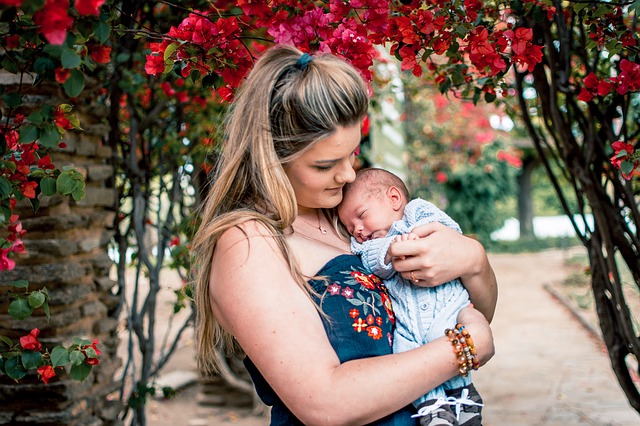
The Centers for Disease Control and Prevention (CDC) has identified people who are more likely to become severely ill from COVID-19. Women who are pregnant or breastfeeding are among them. This article shares the CDC’s guidance regarding pregnancy, breastfeeding, and newborn care during COVID-19.
If you have questions about your individual situation, talk to your health care provider.
Increased Risk for Pregnant Women
Based on what we know at this time, pregnant women are at an increased risk for severe illness from COVID-19 and death, compared with nonpregnant women. Additionally, pregnant women with COVID-19 might be at an increased risk of adverse pregnancy outcomes, such as preterm birth.
It’s especially important for pregnant women, and those who live with them, to protect themselves from COVID-19. The best way to protect against and reduce the spread of COVID-19 is to:
- Limit interactions with people who might have been exposed to or who might be infected with COVID-19, including those within your household.
- Wear a mask and avoid people who are not wearing masks.
- Stay at least 6 feet away from others outside your household.
- Wash your hands with soap and water for at least 20 seconds, or use a hand sanitizer with at least 60% alcohol if soap and water are unavailable.
If you have symptoms of COVID-19, get in touch with your health care provider within 24 hours, and follow steps for when you feel sick. If you have COVID-19 emergency warning signs (e.g., trouble breathing, persistent chest pain, new confusion, inability to wake or stay awake, bluish lips or face), call 911 and seek emergency care immediately. Contact your health care provider if you think you’ve been exposed to someone with COVID-19.
Consider the following tips to stay healthy during your pregnancy:
- Keep all of your health care appointments during and after pregnancy.
- Get recommended vaccines, including those for influenza and whooping cough.
- Keep at least a 30-day supply of prescription and nonprescription medicines to reduce trips to the pharmacy.
- Do not delay getting emergency care because of COVID-19.
Mothers Caring for a Newborn
While much is still unknown about the risks facing newborns born to mothers with COVID-19, we do know that:
- COVID-19 is uncommon in newborns born to mothers who had COVID-19 during pregnancy.
- Some newborns have tested positive for COVID-19 shortly after birth. It is unknown if these newborns got the virus before, during or after birth.
- Most newborns who tested positive for COVID-19 had mild or no symptoms, and recovered.
The CDC has provided recommendations for caring for your newborn if you are in isolation for COVID-19. Consider the following precautions until your isolation period has ended:
- Stay home to separate yourself from others outside your household.
- Stay away from other household members who are not infected, and wear a mask in shared spaces.
- Have a healthy caregiver, who is not at increased risk for severe illness, take care of your newborn. If a healthy caregiver is not available, you can care for your newborn if you are feeling well enough.
Once your isolation period has ended, you should still wash your hands before caring for your newborn, but you don’t need to take other precautions. You likely won’t pass the virus to your newborn or any other close contacts after your isolation period has ended.
Additionally, do not put a face shield or mask on children younger than two years old. A face shield could increase the risk of sudden infant death syndrome, accidental suffocation and strangulation. Babies move around often and their movement can cause a plastic face shield to block their nose and mouth, or cause the strap to strangle them. Additionally, the CDC recommends the following care tips:
- Limit visitors to see your new baby.
- Bring your baby to the doctor for newborn visits.
Tips for Breastfeeding Women
Current evidence suggests that breast milk is not likely to spread COVID-19 to babies. You and your health care provider should decide whether and how to start or continue breastfeeding.
If you have COVID-19 and will breastfeed:
- Wash your hands before breastfeeding.
- Wear a mask while breastfeeding and whenever you are within 6 feet of your baby.
If you have COVID-19 and will express breast milk:
- Use your own breast pump and do not share it with anyone else.
- Wear a mask during expression.
- Wash your hands before touching any pump or bottle parts, and before expressing milk.
- Follow recommendations for proper pump cleaning after each use. Clean all parts of the pump that come into contact with breast milk.
- Consider having a healthy caregiver feed the expressed breast milk to the baby. Any caregiver should wear a mask when caring for the baby for the entire time you are in isolation. The caregiver should continue to wear a mask and quarantine themselves after you complete isolation.
Additional Information
It’s important to ensure your own social, emotional and mental health, especially when pregnant. Learn about ways to cope with stress and tips for caring for yourself during the COVID-19 pandemic. If you are experiencing postpartum depression or anxiety, contact your health care provider.
A New England Nanny’s caregivers are taking rigorous precautions for safety and hygiene, so you can feel comfortable with our child care, senior care, housekeeping, in-home learning, and pet sitting services. Contact us at (518) 348-0400 and let us know how we can help make your life easier!
© 2021 Zywave, Inc. All rights reserved.
